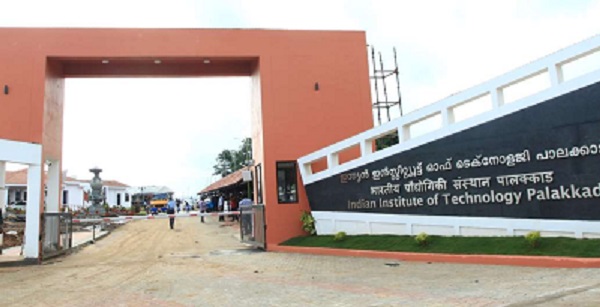
PALAKKAD, KERALA, 16th January 2023: IIT Palakkad Technology IHub Foundation (IPTIF) is offering up to Rs. 2 Crore through its flagship national contest Samarth Maha Utsav to encourage innovation in Renewable Energy and Safety.
The Tech hub is encouraging innovators, entrepreneurs and start-ups in the renewable energy and safety sector by funding teams that have a viable prototype and business plan for large-scale commercialization.
Samarth Maha Utsav aims to play a critical role in driving innovation in the energy and safety sectors, helping to address some of the major challenges facing these industries, and helping to drive progress and improve the lives of individuals and communities around the world. The innovations submitted by the team would be evaluated on criteria such as Innovativeness, Technical Competence, Social Impact, Scalability and potential besides Commercial Viability.
The competition is open to all innovators and start-ups in India with a working prototype in energy or safety sector. The last date to apply is 31st January 2023. Those interested can apply through the following link - https://tinyurl.com/Samarth-Maha-Utsav
A Section-8 company established by IIT Palakkad with Rs. 100 crore supported by the Department of Science and Technology (DST), Government of India, IPTIF is providing a reliable platform for the technology based start-ups and entrepreneurs.
Highlighting the need for such competitions, Mr. Harilal Bhaskar, Chief Executive Officer, IIT Palakkad Technology IHub Foundation (IPTIF), said, “The global energy and safety sectors are facing several challenges such as need to increase efficiency and reliability of the energy systems, reduce Greenhouse Gas emissions and improve safety standards in critical public infrastructure such as roads, rails, and dams. To address these challenges and drive innovation in these sectors, it is necessary to identify and support the development of new technologies.”
Mr. Harilal Bhaskar added, “IPTIF aims to address these challenges by attracting the best innovators and start-ups thereby, providing them with funding and support to help them bring their ideas to fruition. Samarth Maha Utsav is a major initiative in this direction.”
IPTIF’s Samarth Maha Utsav visualises empowering massive progress of skills in design aspects and innovation of multidisciplinary systems relevant to the energy and safety domains. It aims to discover and nurture innovative and sustainable solutions for India’s significant Energy and Safety challenges and make India a pacesetter in technology solutions surpassing the rest of the world.
The Teams taking part in the contest as expected to develop solutions in the following areas:
I. ENERGY:
Scouting for more eco-friendly energy solutions safe to use, economical at large scale, with high efficiency and power/energy density, high reliability, and lifetime.
The expected solutions can be:
Ø Energy storage technologies that are greener (such as Iron/Aluminium batteries instead of Lithium) and can store renewable energy (Ex: producing hydrogen using wind energy).
Ø Energy generation technologies that are greener (like solar thermal, wind, etc.), with high power/energy density (similar to nuclear reactors), and are safe to use (Ex: better nuclear storage/usage, better hydroelectric planning to avoid flooding risks).
Ø Energy conversion technologies that are greener eliminate the usage of rare earth magnets in motors.
Ø Energy transportation/distribution technologies are greener (such as micro grids and local renewables, distributed power plants) and have easy accessibility (Ex: hydrogen can be filled as easily as petrol, and battery swapping may take a similar time as petrol filling).
II. SAFETY
Scouting for more viable safety solutions for circumstances such as Predictive Intervention for Safety on Inconsistent Roads with Heterogeneous Traffic (PI-SIRHT), Predictive Maintenance of Road, Rail and Bridges, Inconsistency based segmentation of road networks, Vehicle and VRU tracking on IRHT etc.
The expected solutions should solve:
Ø Potential sub-problems in traffic safety modelling by developing real-time crash prediction models for heterogeneous traffic using driving simulator experiments, surrogate safety measures, traffic simulations, trajectory predictions and historical crash data. Moreover, it should focus on road network analysis like the remote estimation of road geometry, assessment of road network inconsistencies, segmentation and crash susceptibility.
Ø Potential sub-problems in sensors and controls by developing traffic state sensing, infrastructural state sensing, driver state sensing, vehicle state sensing, automotive safety and reliability, feedback control, reliability and security of the sensors and controllers, fault-tolerant design, and sensor data fusion for accuracy and energy efficiency
Ø Potential sub-problems in communication by evolving vehicle-to-vehicle communication, vehicle-to-infrastructure communication, security solutions for all communication abstraction levels, and network and host intrusion detection and deterrent systems.
Ø Potential sub-problems in computing and software by augmenting software vulnerability and cyber security, identification, data privacy and authentication, big data analytics and cloud-based solutions, and automation of CCTV analysis.
Ø Potential sub-problems in policy and planning by enhancing accessibility, equity, privacy, social cost-benefit analysis, and cross-domain policy design.
Click Here for More Science & Technology
